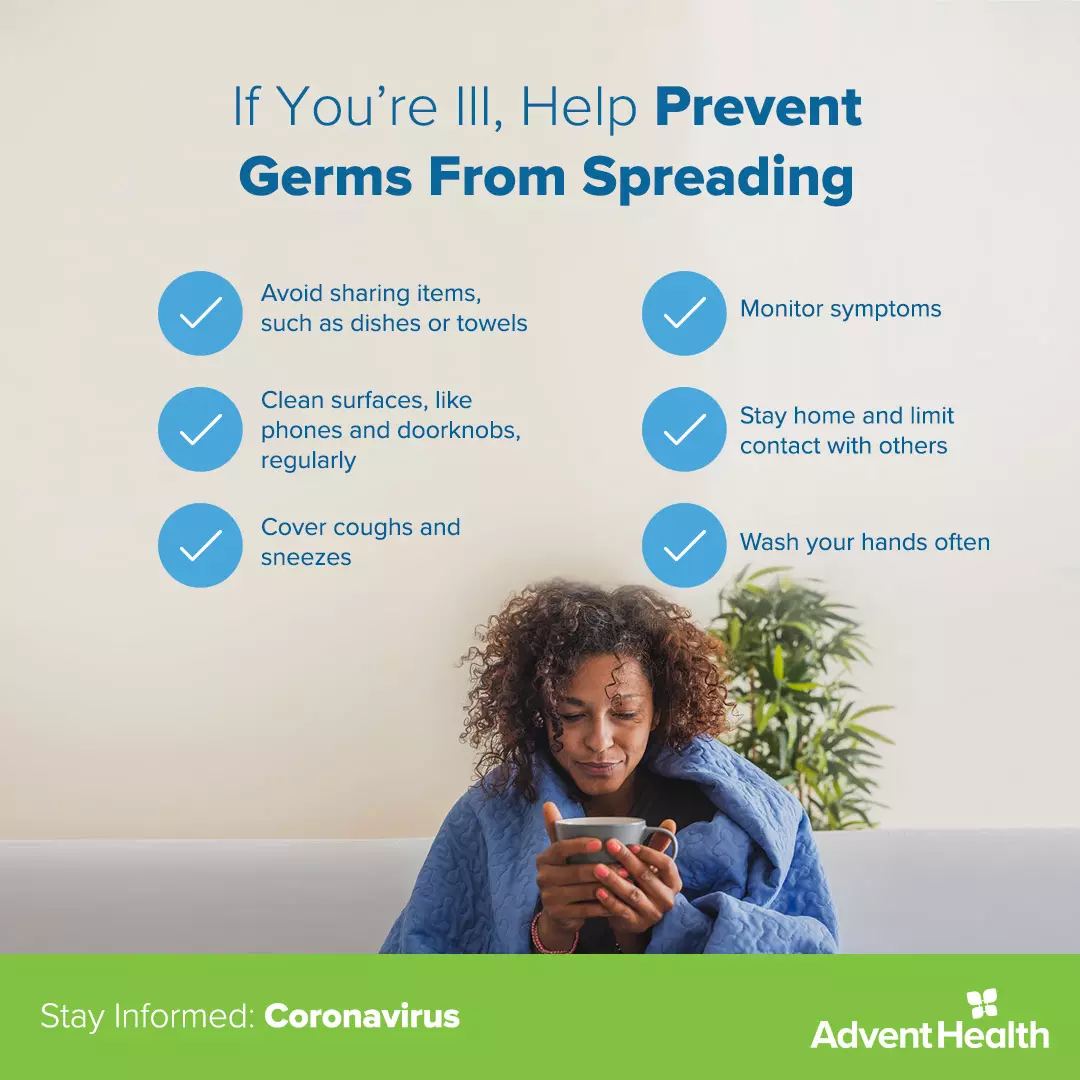- AdventHealth

If you have recently traveled to a location that the Centers for Disease Control and Prevention (CDC) has deemed “Level 3”, meaning where the coronavirus is widespread, or if you are experiencing symptoms that could be consistent with others who have COVID-19, it’s especially important to take the steps to prevent spreading germs.
Common coronaviruses usually cause mild to moderate upper-respiratory tract illnesses, much like the common cold. Symptoms such as fever, cough and shortness of breath may appear. Coronaviruses can also sometimes cause illnesses like pneumonia and bronchitis. Most patients with respiratory symptoms do not have COVID-19 and likely have a more common illness like the flu.

What to Do If You’re Sick
If you’ve been diagnosed with COVID-19 or think you might have been exposed to it, limiting your interactions with others is very important. First, seek medical attention either by calling your primary care physician, visiting the emergency room or setting up a video visit appointment through the AdventHealth app.
To help prevent the possible spreading of the disease, the CDC recommends the following to those who have coronavirus disease:
- Stay home. Do not visit public areas or take public transportation
- Stay away from others. If you live with others — family members, friends or even pets — try as much as possible to be in a specific room and use a separate bathroom. Especially avoid physical contact with others, including animals
- Prevent exposure at medical offices. Before you visit a doctor’s office or emergency room, call ahead and share your concerns so the office can prepare accordingly before you arrive
- Practice proper coughing and sneezing etiquette. Cover your mouth and nose with a tissue, dispose of the tissue in a trashcan and wash your hands thoroughly
- Wash your hands often. When soap and water are available, wash your hands for at least 20 seconds. Hand sanitizer that’s at least 60% alcohol is a good substitute, ensuring you cover all areas of your hands and rub them together until they’re dry. Also try to avoid touching your eyes, nose and mouth
- Don’t share items. This includes dishes, towels and bedding. Make sure any items you or another sick member of your household use are washed regularly
- Clean surfaces often. Counters, doorknobs, phones, etc., should all be disinfected daily
- Monitor symptoms. Follow your physician’s care plan and be sure to alert them if you begin to feel worse
For those who are already ill and following a home isolation, stay home until you’re cleared to leave. Always keep in contact with your healthcare provider to discuss the safest plans for you and your community.
How Coronavirus Spreads
According to the CDC, it’s thought that coronavirus spreads mainly through person-to-person contact, predominately when an infected person is showing the most symptoms, but it’s possible that the virus could be spread before someone infected has symptoms.
Coronavirus moves from person-to-person through respiratory droplets that enter the air when an infected person coughs or sneezes. Once airborne, these droplets then enter other people within up to six feet of each other via their mouth or nose.
More Information
To stay up to date with the latest coverage on the coronavirus, including how to best protect yourself and your family, visit the CDC online. AdventHealth also has answers to frequently asked questions surrounding coronavirus, available on our Coronavirus Resource Hub.


